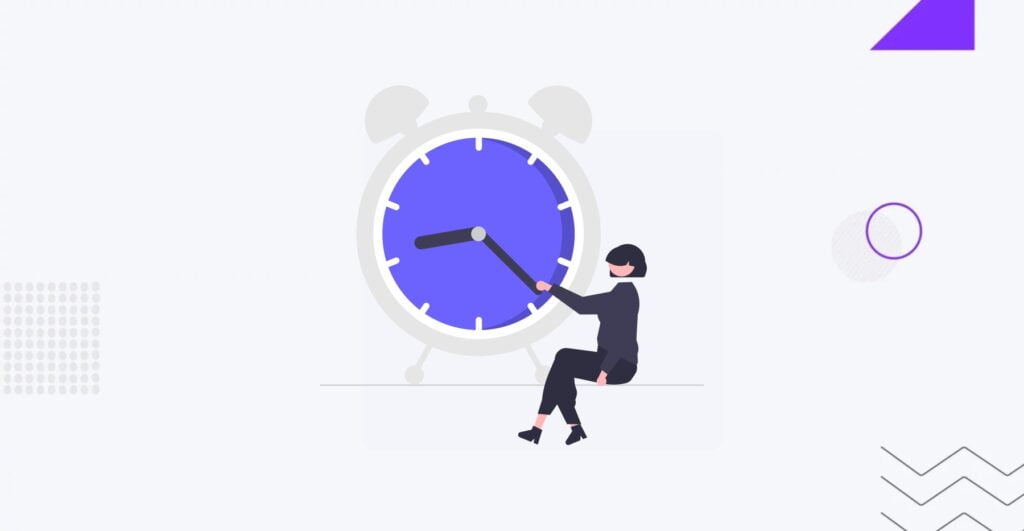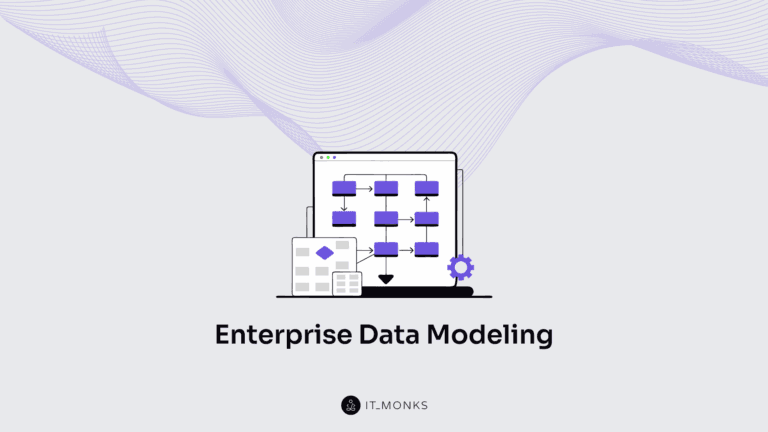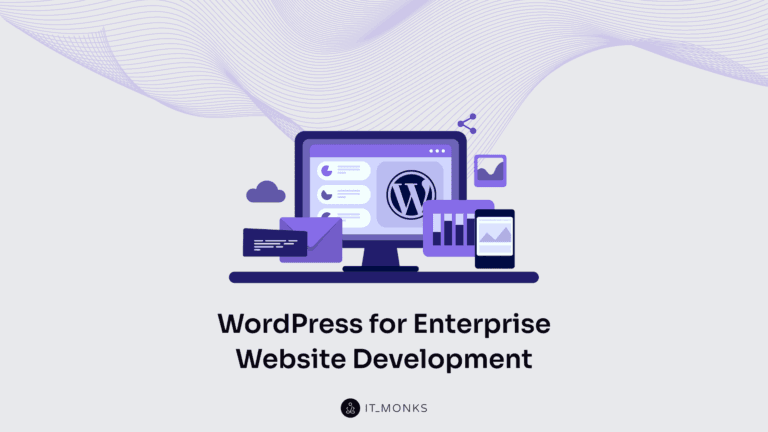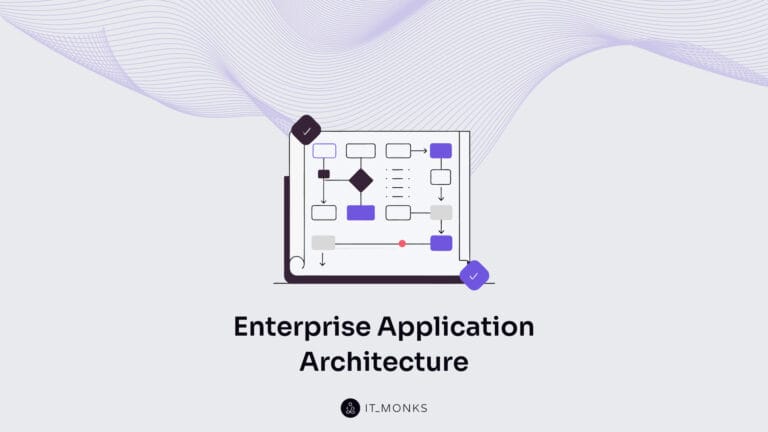How Long Does it Take to Build an Ecommerce Website
Table of Contents

Most business owners ask an ongoing question when bringing their brands online: “How long does it take to build an ecommerce website?” Depending on the website type, functionality, platform, and web development approach, an e-commerce website will take from 2 months to launch. How much will it take to build your ecommerce project? Let’s discuss the timeline for making online stores of different sizes and the factors affecting this.
What is Ecommerce?
Ecommerce refers to buying and selling products and services over the internet. This digitalized version of traditional commerce facilitates the processes of selecting and purchasing different solutions on a website. Any business in any industry can operate in ecommerce, enabling their customers to purchase using desktop computers, laptops, tablets, and smartphones.
Time and money are the two major things people worry about when making an ecommerce website. While we cannot underestimate the importance of these two aspects of ecommerce website development for individuals and companies looking forward to bringing their projects online, there are other no less important considerations, like the choice of the ecommerce platform, hosting, design, functionality, etc. that businesses need to take into account to make their projects stand out.
Ecommerce website building is a multi-faceted process, which starts from planning and outlining the primary objectives of your project to designing and implementing all your expectations to reality, ensuring your web store is easy to find on search engines, providing your customers with a seamless user experience, loads fast on all devices, and seamlessly adjusts to all screen sizes. If you are wondering, “What is the best way to build an ecommerce website?” we recommend you rely on professional help. At IT Monks, we create ecommerce projects of any difficulty for businesses engaged in various industries. Whatever request you have, we will implement it professionally and promptly.
Factors Influencing Development Time
There is no one-size-fits-all strategy when it comes to ecommerce website building. Every project is unique and comes with its specifications and complexities, the implementation of which can be achieved in different timeframes. Generally speaking, the major factors influencing your website’s development time include but are not limited to the following:
- Website Complexity (the choice of features, design, and functionality);
- Development Team Capabilities (the experience and skill level of the development team is one of the major factors determining how fast the job is done);
- Scope of Customization (working with pre-built solutions takes less time to build an ecommerce website than creating every element from scratch);
- Integration Needs (integrating your web store with third-party systems adds more complexity to the website development process);
- Content Creation and Management (creating, optimizing, editing, and organizing content the way it fits your website takes additional time);
- Testing and Quality Assurance (QA and thorough testing are inevitable parts of the ecommerce website development process).
Types of Ecommerce Websites
One major factor determining the ecommerce website building timeframe is the type of project you need to launch. For your convenience, we break the list into three major types of ecommerce websites, each with its peculiarities and specific timeframes.
Basic Ecommerce
Timeframe: 2-5 months
These are small ecommerce websites characterized by simplicity and a limited product range. Basic ecommerce websites are mainly developed for startups and small businesses looking to establish an online presence without adopting complex features or extensive customization. Such web stores feature product listings, shopping carts, and payment gateways.
Big Ecommerce
Timeframe: 6-12 months
These are websites with more complex requirements catering to larger businesses. Big ecommerce stores are developed to handle a broader range of products than basic ecommerce sites and larger traffic volumes. They require more customization work and integration with more advanced features, like multiple payment options, inventory management, advanced security features, etc.
Marketplace
Timeframe: 12+ months
Developing ecommerce websites for marketplaces like Amazon, eBay, or Etsy is the most complex and time-consuming process. Such platforms function as market hubs where different vendors sell their products. Developing ecommerce websites for marketplaces involves the integration of extensive features for both vendors and buyers and developing sophisticated search features, order management options, ratings, review options, etc. Building a marketplace involves significant backup work to ensure a smooth and seamless management of order processing, payments, and transactions.
Besides the three major types of ecommerce websites mentioned above, businesses can also opt to use ready-made templates provided by platforms like Wix. These templates allow you to create a basic online store with standard features in weeks. However, such projects’ scalability and customization options can hardly compete with custom-built ecommerce websites.
Ecommerce Development Options
There are two widely accepted ways to build an ecommerce site: using a ready-made theme or opting for custom ecommerce development, which allows you to create an ecommerce website from scratch. Both approaches have their best use cases and advantages and disadvantages that business owners should consider when launching their web stores. Let’s examine the pros and cons of the mentioned ecommerce development options.
Template-Based Ecommerce Websites
Advantages:
- Ease of use. As a rule, template-based platforms like Wix or WooCommerce offer user-friendly interfaces that users without technical skills can manage.
- Quick launch. Pre-built templates include integrated features and designs that allow a quicker launch of an ecommerce site.
- Cost-effectiveness. Launching a template-based website is often cheaper than building a website from scratch.
Disadvantages:
- Limited customization options. Ready-made templates are delivered with pre-defined customization options, resulting in your website lacking unique branding and features.
- Scalability restrictions. When your ecommerce business grows and evolves, you may encounter scalability and flexibility issues associated with running a theme-based site.
- Your store may look similar to a competitor’s website built on the same template.
Custom Website Development
Advantages:
- Unique website tailored specifically for your brand. Distinctive online presence that reflects your brand identity.
- Scalability and flexibility are intended to adjust your website as your brand evolves.
- Integration with advanced features and functionality that can improve your particular business’s operations and meet customer needs.
Disadvantages:
- Higher cost compared to launching a theme-based website.
- It takes more time to build a website from scratch.
- Creating an ecommerce website from scratch requires advanced technical skills, which a skilled web developer or a web design agency can execute.
Custom Ecommerce Web Development Process
If you want your web store to be one-of-a-kind, perfectly emphasize your brand identity, feature the needed tools and options that your specific business and customers need, and be scalable and flexible enough to adjust according to your brand’s requirements, then opt for a custom-made ecommerce website should be the ultimate choice for you. Building an ecommerce website from scratch can be divided into several major stages, each with its timeframe and a set of activities. Let’s get each stage listed and sprained below.
Brief Meeting
Timeframe: 1-2 hours
At IT Monks, we create a custom ecommerce website with a brief meeting to understand your project’s specific requirements and lay the ground for effective collaboration.
Pre-Phase
Timeframe: 1-2 weeks
During the pre-phase stage, the web development team analyzes and collects your project requirements, does market research, creates a detailed project plan, chooses appropriate technologies, and finalizes the project scope.
Design Development
Timeframe: 3-4 weeks
The stage includes creating wireframes, designing user interfaces and navigation elements according to your project’s requirements, and following UI/UX standards.
Front-end Development
Timeframe: 4-6 weeks
During the front-end development stages, the web development team converts the approved design into code to create your website’s front-end structure and styling. During this stage, it’s vital to ensure your website looks stunning on different devices and screen sizes, also ensuring the utmost new website SEO.
Back-end Development
Timeframe: 6-8 weeks
The back-end ecommerce website development stage includes developing your web store’s server-side logic and functionality using programming languages like PHP or Python, implementing ecommerce features, and implementing the database schema for efficient data management.
Data Migration
Timeframe: 1-2 weeks
After the front-end and back-end website development are completed, the development team migrates the data to your new websites, ensuring the utmost accuracy and security during the data transfer process.
Launch & Support
Timeframe: Ongoing
This is the final stage of custom ecommerce website development. Following the launch of your website, you gain ongoing support and maintenance services for your project, ensuring all elements and functionality of the website perform smoothly and according to your business requirements.
Conclusion
Now that you know the answer to “How long does it take to launch an ecommerce website with a ready-made theme versus building one from scratch?” you can choose the optimal solution that meets your business requirements and budget.
Investing in a well-designed and professionally built ecommerce website is vital for every business that wants to stand out and thrive in the highly competitive digital market. A well-thought-out ecommerce website lets you boost your brand’s visibility, promote your offers, appeal to a wider range of users, and drive more sales.
While multiple factors are involved in creating a successful ecommerce website, relying on professional help is paramount to achieve the best results. For businesses looking forward to creating ecommerce projects that are well-optimized for usability, security, speed, SEO, etc., the IT Monks team offers custom ecommerce website development services. Relying on our expertise and 15+ years of experience, you may rest assured your online store will be set up to bring your business long-term growth and profitability. Contact us whenever you need to get your business to the next level with a competitive and multi-functional website!
FAQ
- How difficult is it to build an ecommerce website?
The difficulty of launching an ecommerce website varies depending on your business project’s requirements, features, customization options, etc. While ecommerce platforms like WooCommerce provide usable features to launch online stores with basic functionality, developing a scalable and fully customized ecommerce solution may require more resources and specialized help from web development agencies like IT Monks.
- How much does it take to develop an ecommerce website?
The cost of ecommerce website building services varies depending on multiple factors, including the scope of work, features, design complexity, development approach, etc. On average, building a theme-based ecommerce website costs $10,000. Custom ecommerce website development services, including design, hosting, and maintenance, start at $20,000.
Contact
Don't like forms?
Shoot us an email at [email protected]

Send a Project Brief
You are currently viewing a placeholder content from Facebook. To access the actual content, click the button below. Please note that doing so will share data with third-party providers.
More InformationYou are currently viewing a placeholder content from Instagram. To access the actual content, click the button below. Please note that doing so will share data with third-party providers.
More InformationYou are currently viewing a placeholder content from X. To access the actual content, click the button below. Please note that doing so will share data with third-party providers.
More Information


